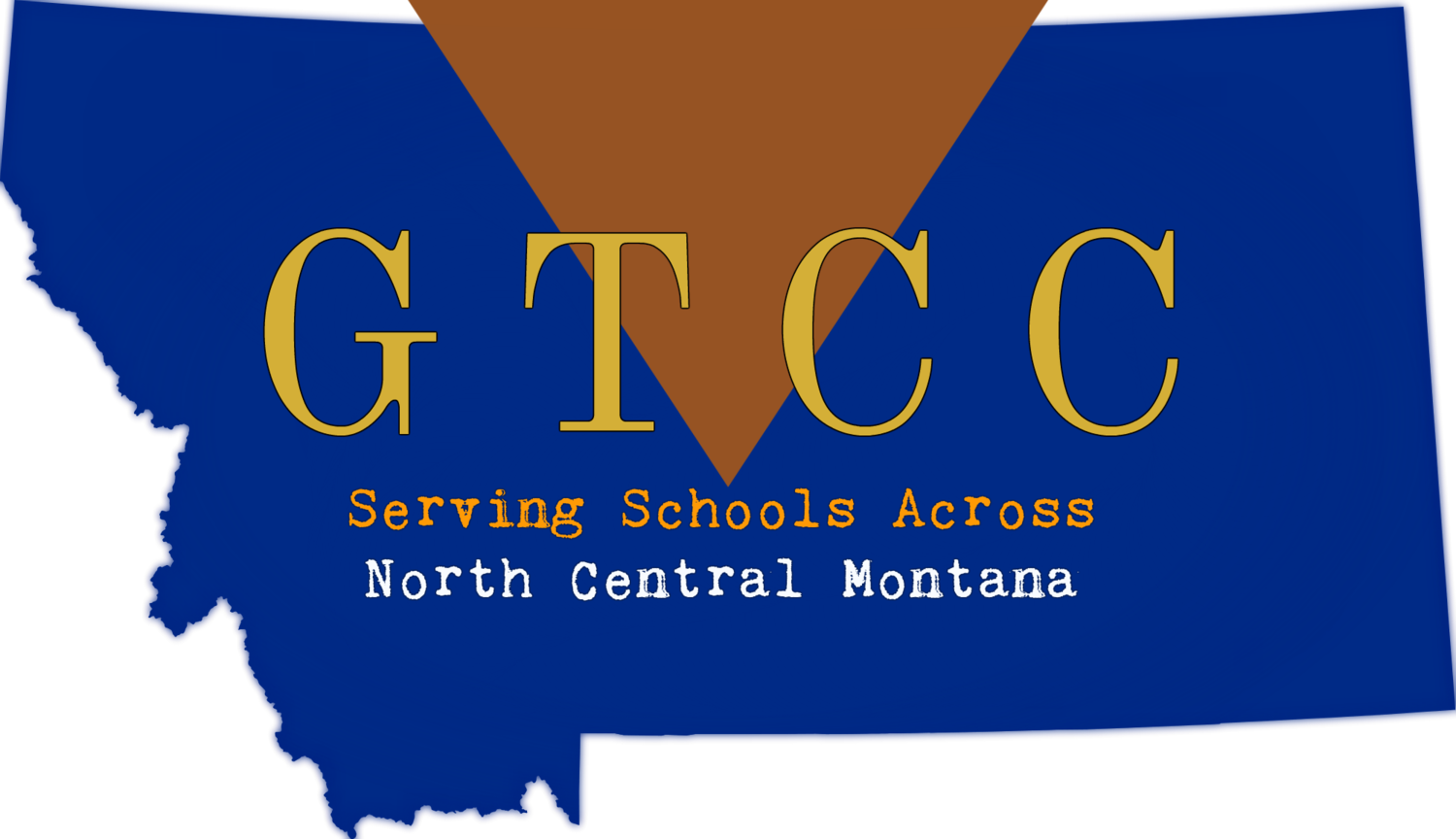Curriculum Development
The Golden Triangle Curriculum Cooperative (GTCC) is a consortium of thirty-eight K-12 and nine K-8 rural Montana and private school districts. In response to many changes, reforms, and mandates affecting national and state education standards today - the GTCC was formed to address the curriculum, assessments and professional development needs of its’ member schools.
GTCC member educators guide, research and write the curriculum objectives for each specific content level. Regional master committee meetings and periodic revisions to documents are ongoing processes that improve the developed materials.
Through collaborative efforts, the Golden Triangle's members have made it possible to provide quality training and resources to assist member schools as they plan, design and implement curriculum and assessment programs within their districts.
The GTCC's products are available to member districts for use in adapting the curricula and assessment tools to their needs in meeting district, state, and national accreditation standards.
Yearly Goals - identified for ongoing professional development
Alignment of Golden Triangle Curriculum objectives to Montana state standards; with consideration of National Standards in 14 content areas
Amend current instructional strategies and professional development opportunities to meet member schools’ needs
Encourage regular participation in all cooperative events, happenings, and revision via regular communication (website, email, monthly newsletters, announcements, mailed correspondence)
Instruct and support member teachers/administrators with remote learning strategies
Support and emphasize differentiated instruction, special education instruction, and Indian Education for All implementation through regular provided professional development and correspondence
Support member teachers’ reading, writing and math instruction & implementation
Support member schools’ individual needs via regular communication
Seek and encourage new school membership
Action Plan
Curriculum Revision Meetings: Revisions for the GTCC curriculum standards are completed on a five year rotation cycle as required by the Board of Public Education for accreditation; six meetings over a calendar year complete a revision cycle. These committees of nominated GTCC teachers come together in meetings to edit, revise, review, and align the curriculum. All GTCC standards are aligned to current Montana state standards with consideration of current national standards. Discussion in these meetings help set goals and identify professional development needs. This identification of needs triangulates with Superintendents’ vision in their Fall Advisory Council Meeting and the vision of the administrators in their Spring Leadership Forum. See Appendix B
Community Relations
What to expect from your school:
an annual report to the community
open and continuing communication
a safe environment which encourages a positive learning climate
the teaching of skills needed to successfully take students into the twenty-first century
the building and nurturing of school, business, community, and parent partnerships
capable, qualified educators and a caring support staff
PROGRAM ASSESSMENT
Each community within a district has unique resources and needs. GTCC member districts maintain the autonomy to assess local needs and to develop plans which reflect community based curriculum solutions.
Curricular programs will be assessed relative to the following areas of DISTRICT SPECIFIC CRITERIA
TIME allotted to attain goals and objectives
CULTURAL AND GENDER issues reflected and infused into the subject matter
LOCAL INVOLVEMENT of teachers, students, administrators and community members in the planning process
realistic attainability and appropriateness of the GOALS AND OBJECTIVES of the program
CONTENT which provides for continuity of learning experiences to meet student needs as well as reflect state and national standards
TEACHING STRATEGIES which encompass a wide variety of learning opportunities
LEARNING EXPERIENCES that lead to the development of higher level thinking skills
MATERIAL available to accomplish and enhance program goals and objectives
on-going student and program EVALUATION
the ability to reach BEYOND THE CURRICULUM of the K-12 classroom and into the community
Professional Development
Opportunities for STAFF DEVELOPMENT include:
Summer Institutes
Workshops
Best Practices
Seminars
Book Studies
Roundtable Events
On-site In-service Training
Participation in National Curriculum & Assessment Conference
TRAINING opportunities for GTCC member administrators and teachers involved:
Developing resources from within our member school districts.
Identifying and using quality resources from outside our school districts.
Topics include, but are not limited to:
Curriculum development and review
Assessment techniques
Pedagogy
Exemplary teaching styles & methods
Technology and technology planning
Strategies to motivate minority and female students toward engaged learning
Mentorship programs
Developing and refining partnerships
University partnerships and university course revision
Grant writing techniques and opportunities
Connecting educators and policy makers
Interschool participation in olympiads, fairs, collaborations and competitions.
Benchmarking

